Zero Waste Gardening: Making Use of Organic Waste
Food waste is one of the major problems in today's society. Fortunately, as a gardener, you can do your part to combat this problem. Making use of food waste, and other organic waste from your garden, is a key part of zero waste gardening. Here are some tips to help you reduce waste and move towards a zero waste lifestyle in your home and garden:
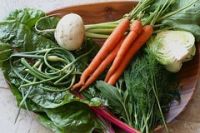 Reducing Consumption
Reducing Consumption
One of the first steps in moving towards a zero waste lifestyle is acknowledging that all too often, we buy more than we actually need. This is more true of food, perhaps, than of anything else. Trying to reduce the amount of food you buy is a sustainable choice. Growing as much of your own food as possible is a good place to start. Beyond this, try to think about what you really need, and make lists to make sure that you don't impulse buy from the shops.
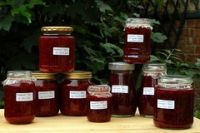 Reducing Food Waste
Reducing Food Waste
The next stage is to think about how you can make best use of all the food that you grow and buy. Many of us are guilty of poor planning, and of letting things go off in the back of the fridge.
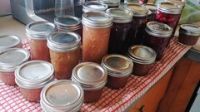 Learning how to preserve fresh produce can help us to make the most of the food that we grow in our gardens, and help us prevent any of it from going to waste. We can freeze some crops, dry others, make jams, jellies, chutneys and pickles. There are plenty of ways to make the food we grow last longer and go further.
Learning how to preserve fresh produce can help us to make the most of the food that we grow in our gardens, and help us prevent any of it from going to waste. We can freeze some crops, dry others, make jams, jellies, chutneys and pickles. There are plenty of ways to make the food we grow last longer and go further.
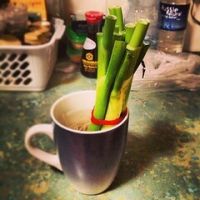 We can also use scraps to grow more food – the ends of celery, spring onion bases, carrot tops and more can be replanted to provide a secondary crop.
We can also use scraps to grow more food – the ends of celery, spring onion bases, carrot tops and more can be replanted to provide a secondary crop.
Something else to consider is that certain seeds from home grown produce can be saved and re-planted to grow the following season.
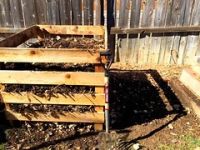 Composting Organic Waste
Composting Organic Waste
Of course, there will always be scraps and peelings from our vegetables and fruits that cannot be eaten or made use of in some way in our kitchens. But even these scraps should not go to waste. Those in pursuit of a zero waste lifestyle can compost all these food scraps, along with other organic waste from their gardens. Learning how to compost is a key skill when you are aiming for zero waste.
Creating Liquid Plant Feeds
As well as creating a high quality compost using kitchen scraps and other material from your home and garden, you can also use organic waste to create valuable plant feeds to sustain your growing plants and feed the soil in your garden.
Finally, remember that food is precious. Using organic gardening methods and taking care in your garden will help preserve the ecosystem. It will help make sure that valuable food and food producing area does not go to waste.